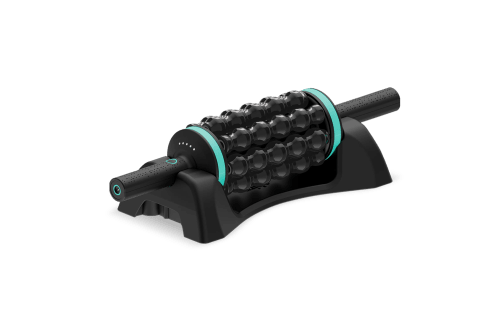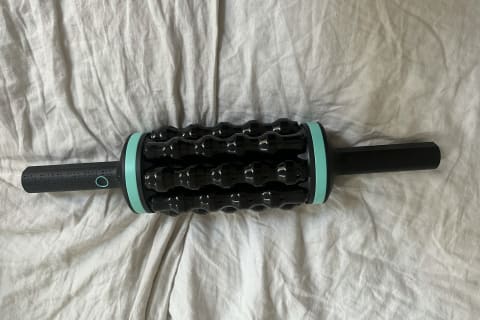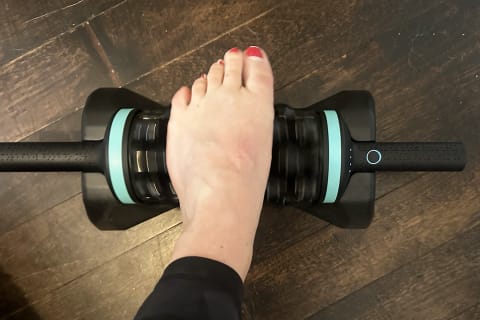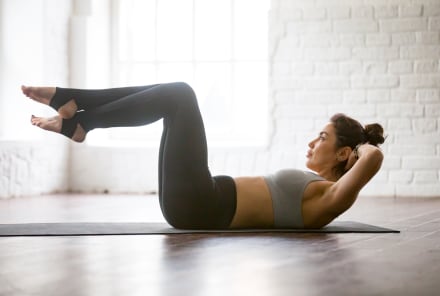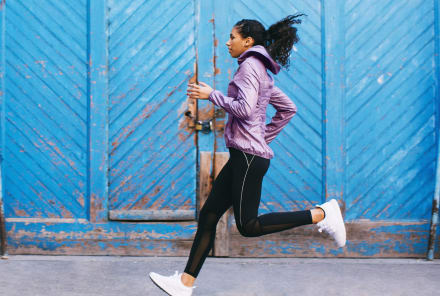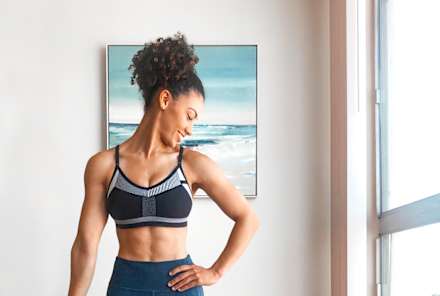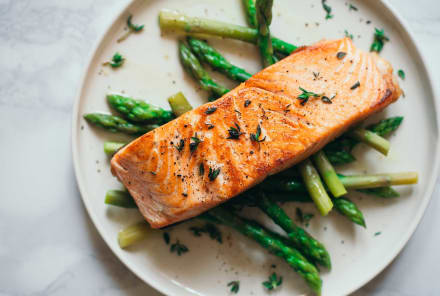Advertisement
I Retired My Massage Gun For This Recovery Tool (& I'm Way Less Sore)


Massage guns play a useful role in recovery. Research shows percussive therapy from massage guns can reduce pain1, while also improving muscle strength and flexibility. But massage guns only target small areas at once, making using them a tedious process.
That's why I was immediately drawn to Chirp's new RPM or rolling percussive massager. The hybrid device combines a massage gun and foam roller into one unit to boost recovery, release tension, and alleviate discomfort.
My favorite part? The device delivers the same benefits as a massage gun but covers 400% more surface area. Naturally I immediately called in a unit for testing—and it's become my go-to tool for preventing muscle soreness after an intense workout. (And my massage gun is all but retired.)
What you need to know about Chirp's RPM
Contrary to popular belief, delayed onset muscle soreness (DOMS) is not due to lactic acid build-up. Rather exercise breaks down muscle tissue and causes tiny micro-tears that trigger your body's inflammatory response.
So how does percussive therapy help? The underlying theory is that massage guns can increase blood flow to the inflamed area (which allows waste to be removed and white blood cells to travel towards the injured area)—just as long as their vibrations are at least 30hHz.
The powerful Chirp RPM delivers on this intensity. Shaped like a foam roller with handles, it has an automated core that spins in both directions at five intensity levels. The rotating core is made up of eight individually spinning bars, which each have four to five modules to ensure a constant stream of pressure.
My experience using the Chirp RPM
My Chirp arrived at my door nearly five months ago, and it's quickly become an essential part of my recovery routine. Although I prefer to turn my Kineon Laser to reduce existing inflammation, the Chirp is my one-stop-shop for preventing it in the first place.
Depending on my workout and the area I want to use the Chirp, I'll rotate between the five intensity settings. While I like the highest setting for my glutes and lower back, I prefer to keep it around a 3 on my shoulders.
My favorite way to use the Chirp RPM is with the included storage base. This setup allows for hands-free treatment, so I can focus on targeting the exact body part that I want without fiddling with the controls.
While you have to be careful not to put too much body weight on the device—more than 60 pounds of weight will force it to stall—I've found this treatment to be the best way to tackle my quads and glutes after a heavy leg day.
Plus, it makes for a great foot massage. Just be warned, it can feel a bit ticklish at first as your body adapts to the sensation (but the relief is a next-level sensation).
Pro tip
What other people say about the Chirp
While I'm a huge fan of the Chirp RPM, I'm not the only person impressed by this one-of-a-kind device. The Chirp currently has 90% perfect ratings with other shoppers raving:
- "Like having a thousand thumbs massage your feet! My wife stole it from me had to buy another!"
- "This has changed the game on rolling out my calves! Goodbye knots! Cannot recommend enough! The RPM is a game changer."
- "I stand on my feet all day and man this thing works differently than all of the other massagers I have ever tried. When some of my family members come over, they try it out and love it. It has different speeds and it's perfect."
- "This thing is absolutely fire. Everyone in the family loves it. If you’ve got sore calves, this thing is THE solution."
The takeaway
As someone who loves the challenge of a difficult workout class, I'm no stranger to the post-workout aches and pains. But once I started incorporating the Chirp into my routine I noticed a drastic improvement in my second day soreness—and I can't recommend it for tackling sore feet, tight calves, and aching glutes.
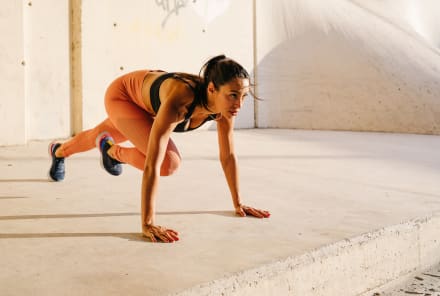
Short On Time? Try This Personal Trainer's 5-Minute Full-Body Workout
Krista Stryker, NSCA-CPT

Short On Time? Try This Personal Trainer's 5-Minute Full-Body Workout
Krista Stryker, NSCA-CPT

Short On Time? Try This Personal Trainer's 5-Minute Full-Body Workout
Krista Stryker, NSCA-CPT

Short On Time? Try This Personal Trainer's 5-Minute Full-Body Workout
Krista Stryker, NSCA-CPT
